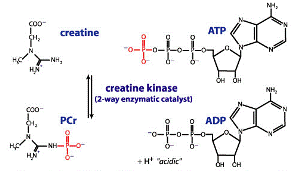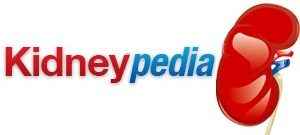
Creatine is a substance that is naturally produced by the human body from amino acids. The production of creatine occurs primarily in the kidneys and the liver, but 95% of it is found in the skeletal muscles. It is transported by the bloodstream to the muscles and is important in muscle activity.
Creatine kinase is an enzyme produced by various tissues that catalyzes the conversion of creatine in muscle activity. In clinical diagnostic testing, creatine kinase levels in the blood are measured as part diagnosis of a number of illnesses. These include acute renal failure (breakdown of kidney function), myocardial infarction (heart attack), muscular dystrophy, and rhabdomyolysis (severe muscle breakdown).
Types Of Creatine Kinase
There are two main recognized types of creatine kinase, type B and type M. The B and M stand respectively for “brain” and “muscle.” Three isoenzymes of creatine kinase are recognized, CK-
Function Of Creatine Kinase
The primary function of creatine kinase is to catalyze a chemical process in which creatine is converted into phosphocreatine. This process is necessary for muscle activity. It performs this function in all kinds of muscles, not just the skeletal muscles responsible for voluntary motion, but also the smooth muscles that power the digestive system and the heart muscle. It also provides the basic energy source for the brain.
Normal Range Of Serum Creatine Kinase
The normal range of serum creatine kinase is between 10 and 120 micrograms per liter of blood. Values above or below this range indicate possible pathologies. This is a fairly large range of values, of course. Normal creatine kinase levels vary by age, gender, muscle mass, and level of activity. Athletes and others who engage in strenuous physical activity have higher creatine kinase without it being a sign of anything necessarily wrong with them.
Elevated Serum Creatine Kinase
When serum creatine kinase is elevated above the normal range, this can indicate any of several conditions. Elevated creatine kinase often occurs following a heart attack. Thus, if a patient suffers from chest pains and there is a suspicion of having undergone a heart attack, the test may be taken as a way to confirm this. After the diagnosis of a heart attack is confirmed by further testing, appropriate treatment for heart disease can be undertaken to help prevent a recurrence. Hospitalization may be necessary, as well as dietary changes and other measures.
High creatine kinase can also be a sign of acute renal failure. Acute renal failure or acute kidney failure can occur from any of several causes, including physical trauma or damage to the kidney itself, obstructed blood flow to the kidney, and viral or bacterial infections. Unlike chronic kidney disease, acute renal failure is self-
Other possible causes of high serum creatine kinase include muscular dystrophy, severe muscle breakdown, and several other rarer causes. Because of the range of possible causes, further diagnostic testing is usually called for, unless symptomatic signs of the affliction are clear (e.g. sometimes a heart attack is quite obvious symptomatically).
Low creatine kinase levels are also cause for concern and may be an indicator of alcoholic liver disease. However, this is not the primary blood test for diagnosing liver disease, whether alcoholic or non-
When A Creatine Kinase Test Is Indicated
Because of the illnesses it can indicate, a test for creatine kinase is indicated whenever a patient suffers from symptoms of heart attack, acute renal failure, or muscular breakdown.
The symptoms of a heart attack include chest pains, difficulty breathing or shortness of breath, sleep disturbance, weakness, and lack of energy.
The symptoms of acute renal failure include decreased urine production, swelling or inflammation in parts of the body, difficulty concentrating or confusion, fatigue and lethargy, nausea, vomiting and diarrhea.
The symptoms of muscular breakdown such as muscular dystrophy are primarily a weakness of the muscles themselves. This is especially so if the weakness is progressive, that is, if it gets worse over time.
The symptoms, if any, accompanying a clinical test revealing elevated creatine kinase can help to identify the underlying cause or illness. In addition, it is beneficial to consider the patient’s lifestyle factors, including alcohol consumption, diet and exercise, age, gender, and weight, and family history.
